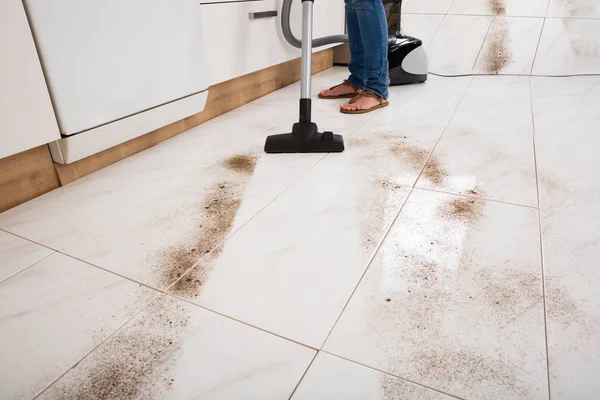Have you ever stopped to think about how industries manage to keep their workspaces clean and dust-free, even when dealing with mountains of raw materials? It’s not just about cleanliness – it’s a matter of safety, efficiency, and keeping everything running smoothly. So, how do they do it? The answer often lies in reverse pulse dust extraction.
1. Mining
Think mining is all about digging and blasting? Well, it’s also about managing huge amounts of dust. From coal to gold, whatever is being extracted, dust is an inevitable by-product. But what makes it such a big deal?
For starters, inhaling dust can be downright dangerous. Prolonged exposure to particles like silica can lead to serious health issues like silicosis. Plus, dust can build up on equipment, causing breakdowns or even fires – especially in coal mines.
This is where reverse pulse dust extractors come into play. These systems help to filter the air, ensuring that harmful particles don’t linger in the atmosphere. By using a reverse airflow to clean the filters, these systems can keep working efficiently even in the harshest mining conditions.
2. Cement Production
If you’ve ever been near a cement plant, you know how dusty it can get. The grinding process that turns limestone and clay into cement generates a ton of fine dust. Without proper extraction, that dust would be everywhere – and I mean everywhere.
But why does that matter? Well, aside from the obvious health risks to workers, the dust can mess with the machinery and even lower the quality of the final product. No one wants their cement filled with debris, right?
By using reverse pulse dust extraction, cement plants keep their operations running smoothly. These systems stop dust from clogging up machines, keeping everything moving efficiently. And they help make sure the cement is top-notch, free from unwanted contaminants.
3. Food Processing
Ever thought about the role dust plays in food processing? Probably not, but it’s more common than you’d think. Whether it’s a flour mill or a sugar refinery, dust is always in the air. And if it’s not dealt with properly, it can lead to some pretty unpleasant outcomes, like food contamination. That’s the last thing anyone wants!
So how do food manufacturers handle this? They rely on reverse pulse dust extraction systems to keep the air clean and the food safe. This not only prevents workers from breathing in harmful particles but also stops dust from ruining the product. After all, no one wants to find dust in their food!
And here’s something you might not know – dust in food plants can be explosive. That’s right, fine particles like flour can cause dust explosions if they’re not properly controlled. Reverse pulse systems help prevent that by keeping the air clear of any dangerous build-up.
4. Pharmaceutical Manufacturing
When it comes to making medicine, even a speck of dust can ruin everything. Have you ever considered how pharmaceutical companies keep their environments so clean? Dust control is a huge part of it.
In pharmaceutical plants, dust can come from all sorts of places – raw materials, the mixing process, even packaging. And when you’re dealing with life-saving drugs, contamination is not an option. That’s why these companies use reverse pulse dust extractors to filter out even the smallest particles.
Not only does this ensure the drugs remain uncontaminated, but it also protects the workers from inhaling potentially hazardous substances. In this industry, precision is everything, and there’s no room for dust to mess things up.
5. Metalworking
Have you ever been in a metalworking shop? If so, you’ll know it’s not just sparks flying around – there’s a lot of dust, too. Whether it’s from welding, grinding, or cutting, metalworking generates tons of fine dust and fumes. And trust me, you don’t want to breathe that in!
This dust can cause long-term health problems for workers, and some of it is even flammable, creating a fire hazard. So how do metalworking plants keep their air safe? With reverse pulse dust extraction. These systems help clear the air, reduce the fire risk, and keep the machinery in good shape. After all, clean machines last longer and need fewer repairs.
Why Reverse Pulse Dust Extraction Matters
In all of these industries, dust isn’t something that can be ignored. Whether it’s for the safety of workers, the quality of products, or the maintenance of equipment, dust control is essential. Reverse pulse dust extraction offers a highly effective solution, using automatic filter cleaning to ensure systems can run smoothly even in the most dust-intensive environments.
By regularly cleaning the filters with bursts of compressed air, these systems can continue to operate efficiently without frequent manual intervention. This not only saves time but also ensures that dust doesn’t accumulate to dangerous levels.
Don’t Ignore Dust – It’s a Bigger Deal Than You Think
If you’re in any of these industries, having a solid dust extraction system isn’t just a nice-to-have – it’s essential. From mining to metalworking, reverse pulse dust extraction helps create safer environments, improves product quality, and keeps your operations running smoothly. So, the next time you’re thinking about your workspace, don’t forget the importance of keeping the air clean.




